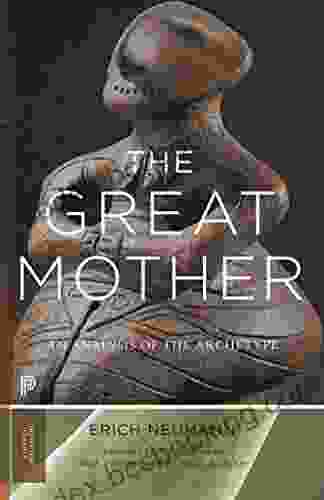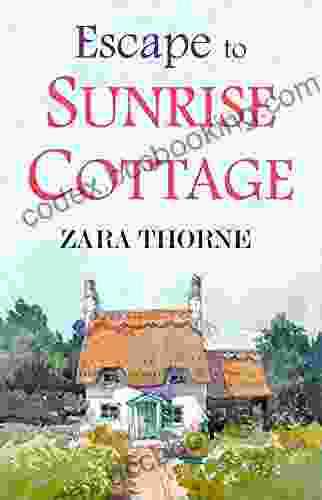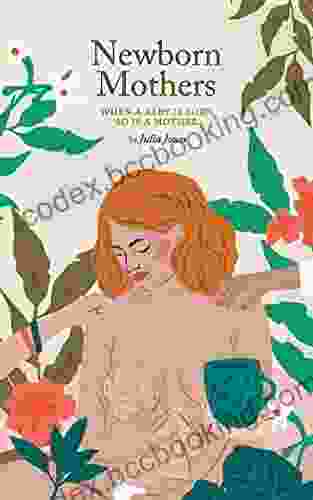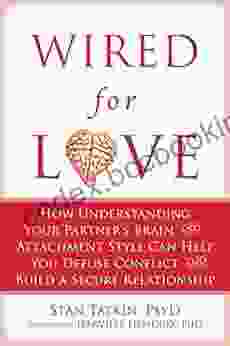How Understanding Your Partner's Brain and Attachment Style Can Help You Defuse

Arguments are a normal part of any relationship. But if you find yourself constantly fighting with your partner, it can take a toll on your relationship and your overall well-being.
4.6 out of 5
| Language | : | English |
| File size | : | 1969 KB |
| Text-to-Speech | : | Enabled |
| Screen Reader | : | Supported |
| Enhanced typesetting | : | Enabled |
| X-Ray | : | Enabled |
| Word Wise | : | Enabled |
| Print length | : | 201 pages |
One way to improve your communication and conflict resolution skills is to understand your partner's brain and attachment style. This can help you to:
- Identify the root of your arguments
- Choose the right words to say
- Avoid saying things that will trigger your partner
- Respond to your partner in a way that is calming and supportive
- Build a stronger and more connected relationship
The Brain and Attachment Styles
The brain is a complex organ, and it plays a major role in how we think, feel, and behave. When it comes to relationships, the brain is responsible for forming attachments.
Attachment styles are the ways in which we relate to others. They are formed in childhood and are based on our experiences with our caregivers. There are four main attachment styles:
- Secure attachment: People with secure attachments feel loved, supported, and valued. They are comfortable with intimacy and are able to express their emotions openly.
- Anxious attachment: People with anxious attachments worry that they are not loved or wanted. They are often clingy and needy, and they may have difficulty trusting others.
- Avoidant attachment: People with avoidant attachments are uncomfortable with intimacy. They may push others away or act aloof. They may also have difficulty expressing their emotions.
- Disorganized attachment: People with disorganized attachments have a mixture of secure, anxious, and avoidant attachment styles. They may be inconsistent in their relationships, and they may have difficulty trusting others.
How Attachment Styles Affect Relationships
Attachment styles can have a significant impact on relationships. Securely attached people tend to have healthy, long-lasting relationships. Anxious and avoidant attachment styles, on the other hand, can lead to conflict and relationship problems.
For example, an anxious person may constantly worry that their partner does not love them. This can lead to them being clingy and needy, which can push their partner away. An avoidant person, on the other hand, may be uncomfortable with intimacy. This can make it difficult for them to build close relationships.
How to Defuse Arguments Using Brain Science and Attachment Styles
If you find yourself constantly arguing with your partner, it is important to understand your own attachment style and your partner's attachment style. This can help you to identify the root of your arguments and to choose the right words to say.
Here are some tips for defusing arguments using brain science and attachment styles:
- Stay calm. When you are in the middle of an argument, it is important to stay calm. This will help you to think clearly and to choose your words carefully. If you find yourself getting upset, take a break from the argument and come back to it later.
- Identify the root of the argument. Once you are calm, try to identify the root of the argument. What is really bothering you? Once you know what the root of the argument is, you can start to address it.
- Choose the right words to say. When you are trying to defuse an argument, it is important to choose the right words to say. Avoid saying things that will trigger your partner or make them feel defensive. Instead, focus on expressing your feelings in a calm and respectful way.
- Avoid saying things that will trigger your partner. If you know that your partner has an anxious attachment style, avoid saying things that will make them feel insecure. For example, don't say things like "I need some space" or "I'm not sure if I love you anymore." Instead, focus on reassuring your partner that you love them and that you are there for them.
- Respond to your partner in a way that is calming and supportive. When your partner is upset, it is important to respond in a way that is calming and supportive. Avoid being dismissive or judgmental. Instead, try to understand your partner's point of view and to offer them support.
- Build a stronger and more connected relationship. By understanding your partner's brain and attachment style, you can build a stronger and more connected relationship. When you are able to communicate effectively and resolve conflict in a healthy way, you will be able to create a lasting and fulfilling relationship.
Arguments are a normal part of any relationship. But if you find yourself constantly fighting with your partner, it is important to understand your own attachment style and your partner's attachment style. This can help you to identify the root of your arguments and to choose the right words to say.
By using brain science and attachment styles, you can defuse arguments and build a stronger and more connected relationship.
4.6 out of 5
| Language | : | English |
| File size | : | 1969 KB |
| Text-to-Speech | : | Enabled |
| Screen Reader | : | Supported |
| Enhanced typesetting | : | Enabled |
| X-Ray | : | Enabled |
| Word Wise | : | Enabled |
| Print length | : | 201 pages |
Do you want to contribute by writing guest posts on this blog?
Please contact us and send us a resume of previous articles that you have written.
 Book
Book Novel
Novel Page
Page Chapter
Chapter Text
Text Story
Story Genre
Genre Reader
Reader Library
Library Paperback
Paperback E-book
E-book Magazine
Magazine Newspaper
Newspaper Paragraph
Paragraph Sentence
Sentence Bookmark
Bookmark Shelf
Shelf Glossary
Glossary Bibliography
Bibliography Foreword
Foreword Preface
Preface Synopsis
Synopsis Annotation
Annotation Footnote
Footnote Manuscript
Manuscript Scroll
Scroll Codex
Codex Tome
Tome Bestseller
Bestseller Classics
Classics Library card
Library card Narrative
Narrative Biography
Biography Autobiography
Autobiography Memoir
Memoir Reference
Reference Encyclopedia
Encyclopedia Kerry Lord
Kerry Lord Rickey Butch Walker
Rickey Butch Walker Nonny Hogrogian
Nonny Hogrogian Robert Barlas
Robert Barlas Lauren Beukes
Lauren Beukes Roger Dawson
Roger Dawson Marianna Palmer
Marianna Palmer Erfun Geula
Erfun Geula Hunter Davies
Hunter Davies Emma Frisch
Emma Frisch Maude Julien
Maude Julien Robin Mcmillan
Robin Mcmillan Scoop Malinowski
Scoop Malinowski Elsevier
Elsevier Lynne Pickering
Lynne Pickering Nancy Romita
Nancy Romita Lari Don
Lari Don Robert Fleming
Robert Fleming Eric Elder
Eric Elder Emma Southon
Emma Southon
Light bulbAdvertise smarter! Our strategic ad space ensures maximum exposure. Reserve your spot today!

 Dawson ReedUnveiling the Archetypal Tapestry of Literature: An In-Depth Exploration of...
Dawson ReedUnveiling the Archetypal Tapestry of Literature: An In-Depth Exploration of...
 Felipe BlairDive into the Laughter and Heartache: A Comprehensive Review of "Dear John:...
Felipe BlairDive into the Laughter and Heartache: A Comprehensive Review of "Dear John:...
 Yasunari KawabataUnlock the Secrets of Prosperity: Prosperity Through Freedom Springerbriefs...
Yasunari KawabataUnlock the Secrets of Prosperity: Prosperity Through Freedom Springerbriefs...
 Jared NelsonCan Spy Easter Bucket With My Little Bunny: The Perfect Book for Your Easter...
Jared NelsonCan Spy Easter Bucket With My Little Bunny: The Perfect Book for Your Easter... Winston HayesFollow ·14k
Winston HayesFollow ·14k Chance FosterFollow ·10.1k
Chance FosterFollow ·10.1k Kurt VonnegutFollow ·7.9k
Kurt VonnegutFollow ·7.9k Dalton FosterFollow ·12.1k
Dalton FosterFollow ·12.1k Miguel NelsonFollow ·14.3k
Miguel NelsonFollow ·14.3k Edgar HayesFollow ·15.3k
Edgar HayesFollow ·15.3k Israel BellFollow ·10.8k
Israel BellFollow ·10.8k Blake KennedyFollow ·12.5k
Blake KennedyFollow ·12.5k

 Isaias Blair
Isaias BlairEscape to Sunrise Cottage: A Captivating Read You Won't...
Are you ready for a...

 Bradley Dixon
Bradley DixonWhen Baby Is Born, So Is Mother: A Comprehensive Guide to...
Giving birth is a...

 Mario Simmons
Mario SimmonsPhotographic Journal of Cruise Around South America: A...
Embark on an Extraordinary Expedition ...

 Langston Hughes
Langston HughesDream Achieved: Unlocking the Power Within to Make Your...
In the tapestry...
4.6 out of 5
| Language | : | English |
| File size | : | 1969 KB |
| Text-to-Speech | : | Enabled |
| Screen Reader | : | Supported |
| Enhanced typesetting | : | Enabled |
| X-Ray | : | Enabled |
| Word Wise | : | Enabled |
| Print length | : | 201 pages |








